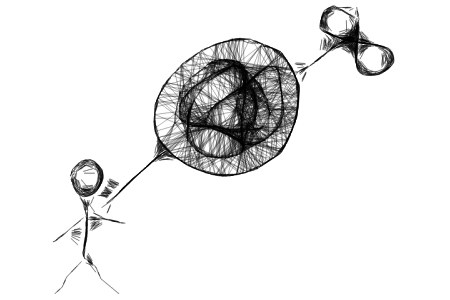Why One Soul Makes Up Reality
The structure of creation is a lot simpler than we think: Everything happens within one’s soul. The soul feels within it the Creator, itself, and the connection between them.
The soul is the only thing that was ever created, and it is all that exists besides the Creator. That soul doesn’t feel anything outside itself and is only aware of its inner world. It is called Adam or Adam ha Rishon (first man), and it is divided into many parts. Each part is an organ of the body of the first man. The soul is, in fact, the very same will to receive delight and pleasure. Its parts, called “unique souls,” are desires for reception of pleasure.
Why the First Soul Shattered into Many Parts
Each soul contains the 613 desires that the collective soul of the first man had before it sinned and broke into many pieces. In Kabbalah, a sin means receiving pleasure for our own delight, as opposed to receiving to bring contentment to the Creator. That was also the sin of Adam ha Rishon. As a result of his sin, his soul was divided into 600,000 separate parts, which came to be 600,000 individual souls. Each of these 600,000 souls consisted of 613 parts, also called desires. Those desires fell 125 degrees down from their original status, called the “root of the soul.” The last degree to which they fell is called “this world,” and it is the lowest spiritual degree of the soul. From that low state a person must correct his or her soul until it returns to its highest state, to the root of the soul. It must rise through the 125 degrees by a gradual correction of the 613 desires.
What Sin Really Is and How It Relates to the Soul and Freedom of Choice
Adam’s sin is misunderstood by us, as is the case with all the terms that take on a physical meaning in our world. Although the Torah seems to use the language of people, it really speaks of a different matter altogether, not about the issues between people. That is why there are misconceptions in the interpretation of the term sin.
Continue reading “The History and Future of All Souls Explained In a Nutshell”
